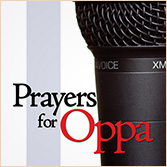Tete-a-tete Archives
An eclectic sampling of my award-winning humor columns. New columns can be read online at www.nashuatelegraph.com on the first Thursday of the month, with columns posted here later in the month.More in "Tete-a-tete"
- Tete-a-tete: Pop culture references lead to unexpected connections
- Tete-a-tete: "Handicapped accessible" doesn't really mean what people think it means
- Tete-a-tete: The ins and outs of the college moving experience
- Tete-a-tete: When dealing with cabin fever, this cat's on a roll
- Tete-a-tete: An artistic masterpiece 20 years in the making
- Tete-a-tete: Promp and circumstance: Modern-day prom prep
- Tete-a-tete: Blue Apron - a Pandora's box of weekly culinary adventures
- Tete-a-tete: Serve up a slice of family traditions, new or old
- Tete-a-tete: 'Family court' has a whole new meaning at our house
- Tete-a-tete: Drafted on the farm: Grandpa's war at home
- Tete-a-tete: With family, you have to give it the ol' college try
- Tete-a-tete: Walk a mile in my Boots: Viva la feline difference
- Tete-a-tete: Slacker movies offer unlikely heroes
- Tete-a-tete - Bag that theory: Purse contents aren't all that enlightening
- Tete-a-tete: Keeping up with the pace of modern-day elder care
- Tete-a-tete: Easter dinner reveals a shocking family secret
- Tete-a-tete: Time flies when you forget to change the clocks
- Tete-a-tete: Here in New Hampshire, we don't take voting 'for granite'
- Tete-a-tete: An Eagle takes flight in another family milestone
- Tete-a-tete: When choosing heirlooms, cross your Ts and dot your ... claims
- Tete-a-tete: Even the best-intentioned Christmas traditions can fail to take hold
- Tete-a-tete: How to enjoy a wedding, even if it's not your own
- Tete-a-tete: A tale of unintentional cat ownership
- Tete-a-tete: Admissions about the college admissions process
- Tete-a-tete: Avoiding car-tastrophe while purchasing a new vehicle
- Tete-a-tete: As American as apple pie: U.S. culture, through other eyes
- Tete-a-tete: The geek gene runs strong in our family
- Tete-a-tete: Grieving entertainment losses with a few simple steps
- Tete-a-tete: Parents, do not give your child the name equivalent of the April birthstone
- Tete-a-tete: Memento or clutter? Don't leave that decision to the historians
- Tete-a-tete: How Mom and Dad saved Christmas (and a hamster)
- Tete-a-tete: Having trouble keeping your New Year's resolutions? It could be "If You Give a Mouse a Cookie" Syndrome
- Tete-a-tete: When Christmas starts before Thanksgiving (a reflection on temporal discombobulation)
- Tete-a-tete: Sizing up a new family pet, or the difference between a cat and a hamster
- Tete-a-tete: When your worst fear comes true
- Tete-a-tete: Family game night can leave you drawing a blank
- Tete-a-tete: When you have a really good reason to skip class
- Tete-a-tete: The downside to the world's most flattering bridesmaid dress
- Tete-a-tete: Say it with flowers - just don't say where you got them
- Tete-a-tete: Shockingly true tales of my Herculean, heroic great-grandpa
- Tete-a-tete: For goodness 'sakes - generational namesakes can confuse
- Tete-a-tete: Confused by the weather? Signs spring has almost sprung
- Tete-a-tete: Seeking the Holy Grail of a universal bridesmaid dress
- Tete-a-tete: Love poetry gone bad, or why I'm still not allowed to use matches
- Tete-a-tete: A traveler's guide to the Big Apple
- Tete-a-tete: Feats of strength aren't just for Festivus festivities
- Tete-a-tete: Change comes from within - sometimes, literally
- Tete-a-tete: Car games: from punch-buggy to punching cell phone buttons
- Tete-a-tete: I mustache you a question about costume practicality
- Tete-a-tete: Functional furniture is making my family dysfunctional
- Tete-a-tete: Jungle Speed board game can bring out the beast in you
- Tete-a-tete: To call it a ‘mooving’ ride would be inaccurate
- Tete-a-tete: When saying ‘sweetheart’ just won’t do
- Tete-a-tete: Eat your heart out, Festivus: Stymchastynchula is here
- Tete-a-tete: Hoping Korean music can explode in the U.S. with a K-pop
- Tete-a-tete: Holidays, especially with Grandma, are always colorful
- Tete-a-tete: Sometimes, it's the grilled cheese that makes the memories
- Tete-a-tete: Still recovering from Dad's forays into home education
Tete-a-tete: Pop culture references lead to unexpected connections
Making connections is all about having the right references. A quote, a bit of trivia, recognition of an obscure allusion on a vanity plate – such things can lead to lifelong friendships, or at least an enjoyable conversation based on mutual understanding.
To be clear, I’m not talking about networking or business references. I’m talking about pop culture references and their astounding capacity to create camaraderie between total strangers.
A friend of mine recently told me about her experience setting up an account that required a verification code in addition to a password. The representative on the phone explained that the code had to be numeric and suggested she choose something easy to remember.
A child of the ‘80s, my friend promptly replied, “Eight, six, seven, five, three, zero, nine.”
The representative hesitated, then asked if she was sure she wanted to choose such a long string of numbers. Wouldn’t that be difficult to remember? She assured him she’d be fine.
The next time she called for information on that account, however, she had completely forgotten what numbers she’d chosen for her code. She spoke to a different representative this time, who stifled a laugh before reading the hint my friend had chosen to remind her of the code: “Jenny.”
My friend had no problem remembering the code after that, and she and the representative both shared a good laugh. This routine business transaction became more personal and enjoyable because they were both familiar with a specific pop culture reference – Tommy Tutone’s 1981 hit, “867-5309/Jenny.”
Sometimes these references are visual. It could be something obvious, like a person wearing a T-shirt with Captain America on it because they’re a fan of the “The Avengers” film franchise, or it could be on the subtler side, like a person wearing a red and gold striped scarf because they enjoy the Harry Potter books.
It can also be so obscure that only those who are truly in the know will pick up on it. Should you see someone carrying a towel around with them on May 25th, you can pretty much assume they’re a fan of Douglas Adams’ “The Hitchhiker’s Guide to the Galaxy” and celebrating Towel Day. As Adams explains in his book, a towel is the most important item an interstellar hitchhiker can have due to its many and varied uses.
If you’re a fellow fan, you can confidently approach towel-carrying individuals on this day and compliment them on being a frood who knows where their towel is. Chances are you’ll get hearty thanks and share and enjoy some “Hitchhiker”-related witticisms. If they give you a puzzled look, however, they’re probably just on their way to the gym or the beach.
There’s a lot of joy in connecting with people in real life via pop culture references, but the ultimate payoff is when you realize that the creator of something you enjoy is also a fan of something else you enjoy.
I’ve enjoyed watching “NCIS,” a long-running police procedural, for years now, and I was thrilled when season 14 recently became available on Netflix. I was even more thrilled when I watched the episode “Being Bad,” about five high school students from different backgrounds who meet in detention and, years later, follow through on their pledge to form a burglary ring, and realized it was an homage to the ‘80s classic, “The Breakfast Club.”
I can safely say I’ve seen “The Breakfast Club at least 25 times, and that’s the low estimate. It was one of several movies I used to put on for background noise while cleaning or doing other mindless tasks in high school and college. And boy did that pay off with this episode of “NCIS.”
I quickly picked up on which characters in the episode represented the characters in the movie (the brain, the athlete, the basket case, the princess, the criminal and the teacher who supervised their detention) and which lines in the episode were actually quotes from the movie. I noticed that the episode’s criminal character was wearing a red flannel shirt and had cigarette burns on his arms, just like his movie counterpart, and that the princess character gave him one of her diamond earrings – a significant turning point in the movie but not so much in the episode.
Please forgive the spoiler (and the seeming lack of humanity), but I was so excited when the episode’s brain character committed suicide with a flare gun. That was exactly what the brain character in the movie had been planning to do after realizing he had failed shop class. He brought the flare gun to school with him and it went off in his locker, which is how he ended up in detention with the other characters.
I was impressed to see so much attention to detail and it made the whole viewing experience that much more fun. It was clear that the creative team for “NCIS” wasn’t just making casual references – they were thoroughly familiar with “The Breakfast Club” and admired the movie enough to do it justice.
Pop culture references help us connect with others in unexpected ways, brightening up business transactions and giving us excuses to strike up conversations with total strangers. They also remind us that those who create the entertainment that shapes our culture today are often inspired by the same things we enjoy.
Which reminds me – if you read this column backward, it says, “Paul is dead.”
– Teresa Santoski
Originally published Aug. 3, 2017
Browse the compendium
Compendium (noun): a summary or abridgment.
Click the icons to the right to check out a sampling of my work.




